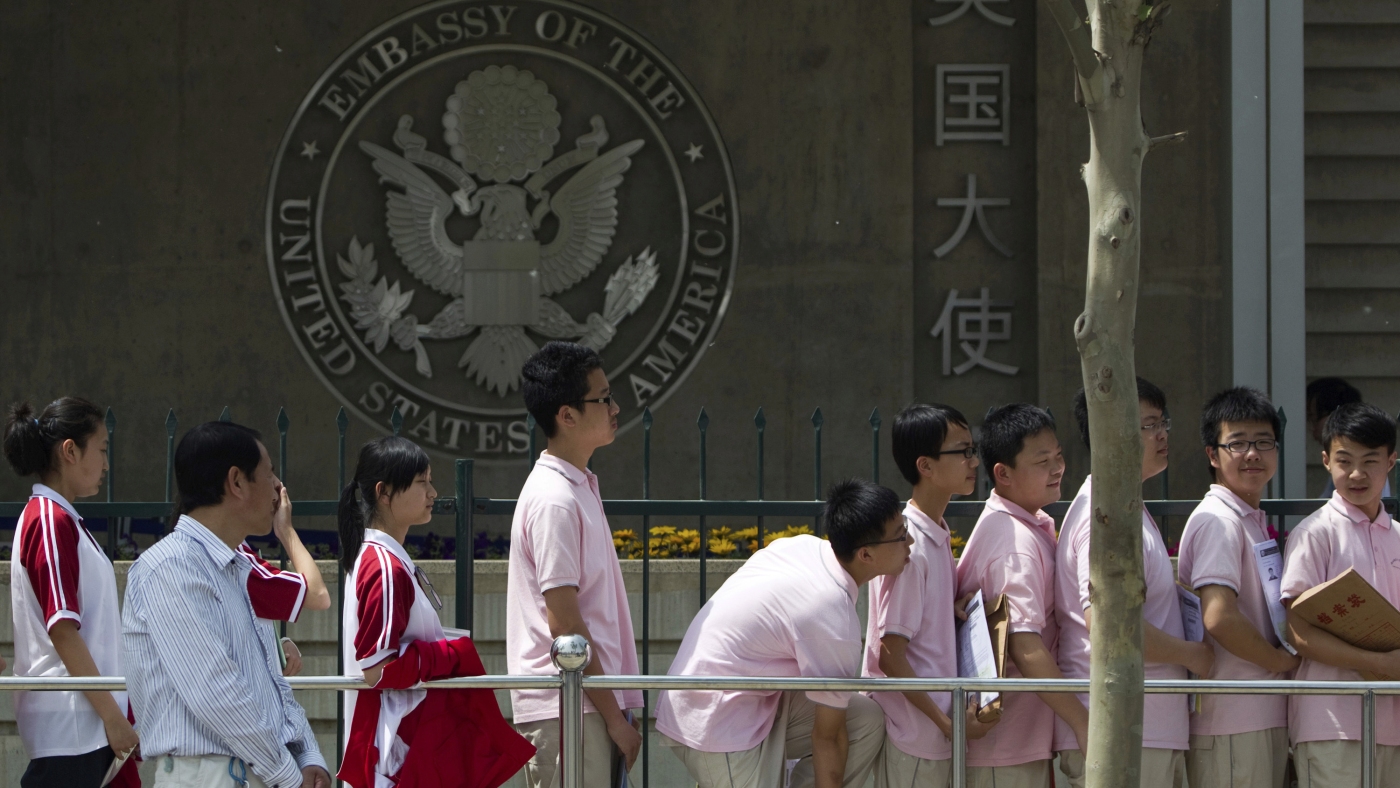Introduction
In an era where digital footprints are as significant as physical ones, the U.S. State Department’s recent decision to resume student visa processing with a new twist—mandatory social media disclosure—has sparked a wave of discussions and concerns. This policy shift, aimed at intensifying vetting protocols, carries far-reaching implications for immigration policy, individual privacy rights, and the dynamics of international education. Let’s delve into the intricacies of this new requirement and its potential impact on various stakeholders.
Background and Scope of the Policy Change
The U.S. State Department’s decision to lift the moratorium on student visa processing, imposed in May, comes with a significant caveat. Prospective foreign students must now grant access to their social media accounts by setting them to “public” for government review. This enhanced vetting process targets major platforms like Facebook, Twitter, Instagram, TikTok, and LinkedIn, with the goal of screening for content or behavior that could indicate hostility toward U.S. citizens, culture, or fundamental principles.
The policy is a response to heightened national security concerns, aligning with previous efforts to tighten immigration oversight. Failure to comply with this demand may result in visa denial, as refusal is explicitly indicated to raise suspicions about the applicant’s intent or affiliations. This move reflects a broader trend of increased scrutiny in the digital age, where social media has become a primary means of communication and self-expression.
Implications for International Students and the Education Sector
Access and Privacy Concerns
For international students, social media is a vital tool for personal expression, networking, and cultural exchange. The new requirement to expose their digital footprints to government scrutiny raises significant privacy issues. Many students may have content on their profiles that, while innocuous or contextual, could be misinterpreted without proper cultural or contextual understanding. This demand also touches on the delicate balance between national security and individual rights, especially as it entails a form of digital surveillance before granting entry.
Moreover, the policy may have a chilling effect on free speech, as students might feel compelled to sanitize or manipulate their social media presence to avoid visa rejection. This could undermine authentic self-representation and limit the open exchange of ideas, a cornerstone of academic freedom.
Impact on Student Mobility and University Diversity
The U.S. has long been a top destination for international students, who enrich the diversity and intellectual vibrancy of its campuses. However, the new scrutiny requirement could deter applicants from countries with stricter social media cultures or from communities wary of surveillance. Students from countries like China, India, Mexico, and the Philippines—major contributors to international student populations—are closely monitoring the new requirements and their potential impact.
The policy may also shift demographic patterns of international student flows. Applicants from countries with sensitive political climates or those concerned about privacy infringements might seek alternative destinations perceived as less intrusive. This could affect the U.S.’s appeal as a global education hub and impact university funding, research, and cultural exchange.
Government Rationale and Security Priorities
The U.S. State Department justifies the measure as a necessary step to identify potential security risks. By examining social media presence, consular officers aim to uncover “indications of hostility” that may not surface through traditional background checks or interviews. This approach allows for a more nuanced evaluation of an applicant’s ideologies, associations, and past behaviors, addressing contemporary challenges in global security environments.
Heightened social media vetting represents an evolution in visa protocols, designed to tackle issues like radicalization, misinformation, and influence operations propagated through digital spaces. It reflects a proactive stance in ensuring the safety and security of U.S. citizens and institutions.
Critical Considerations and Risks
Subjectivity and Bias
The interpretation of social media content can be highly subjective, especially across cultural and linguistic divides. There is a risk that benign expressions or cultural idioms might be misinterpreted as hostile or inappropriate, leading to unfair denials. This subjectivity raises concerns about the fairness and consistency of the vetting process.
Transparency and Accountability
Visa applicants may struggle to understand specific reasons for rejection related to social media content, raising questions about transparency and avenues for appeal. Clear guidelines and transparent communication are essential to ensure that applicants have a fair chance to address any concerns.
Deterrence vs. Inclusion
While national security is a legitimate government interest, excessive procedural barriers can dampen the U.S.’s appeal as a welcoming academic destination. This could impact university funding, research advances, and cultural exchange, which are crucial for maintaining the U.S.’s position as a global leader in education.
Privacy Rights
The demand for social media disclosure highlights the tension between a government’s right to secure its borders and the individual’s right to digital privacy. It raises fundamental questions about the evolving legal and ethical landscape governing access to personal online data in immigration contexts.
Conclusion: Navigating a New Era for International Academic Engagement
The resumption of student visa processing with mandatory social media disclosure marks a pivotal shift in how the U.S. balances security priorities with its role as a global hub for education. While this approach could enhance protections and vet out malign intentions, it also introduces significant complexities around privacy, fairness, and the potential deterrent effect on valuable international students.
Universities, policymakers, and prospective students are now navigating a more intricate admission landscape, where digital footprints carry as much weight as academic credentials. The full implications of this policy change will unfold over time, potentially reshaping the terrain of U.S. international education and raising fundamental questions about surveillance, trust, and openness in a digitally connected world. As we move forward, it is crucial to strike a balance that ensures security without compromising the principles of inclusivity, privacy, and academic freedom that have long defined the U.S. education system.











